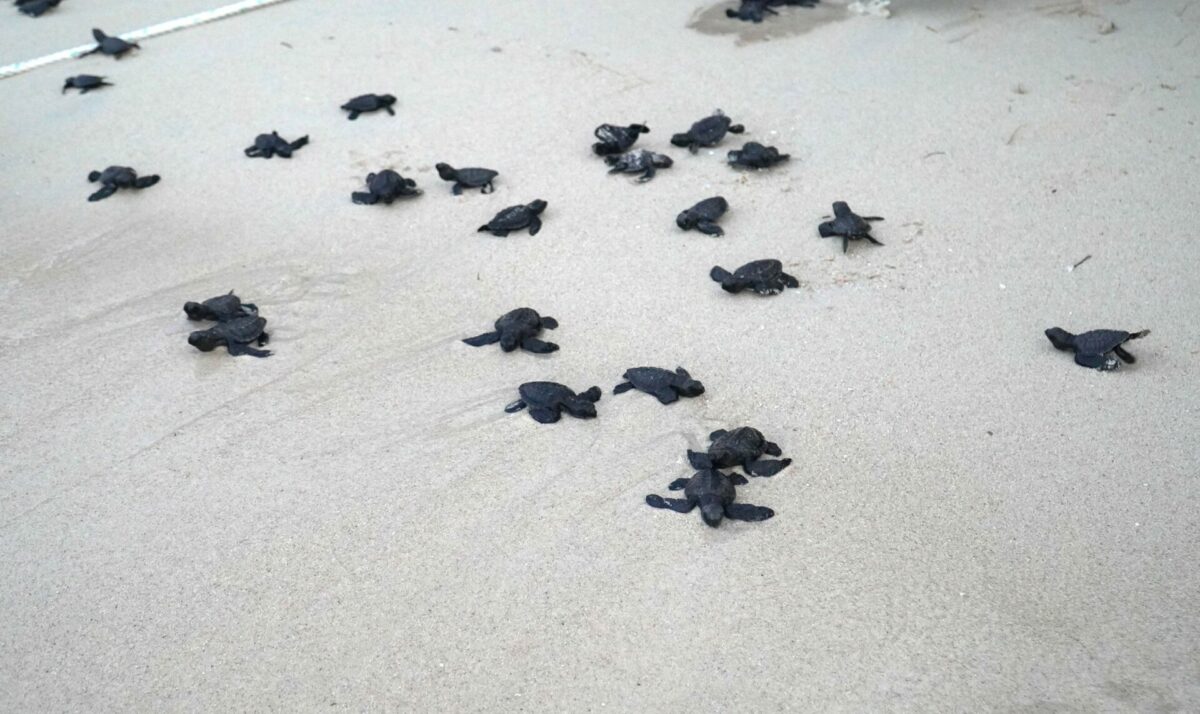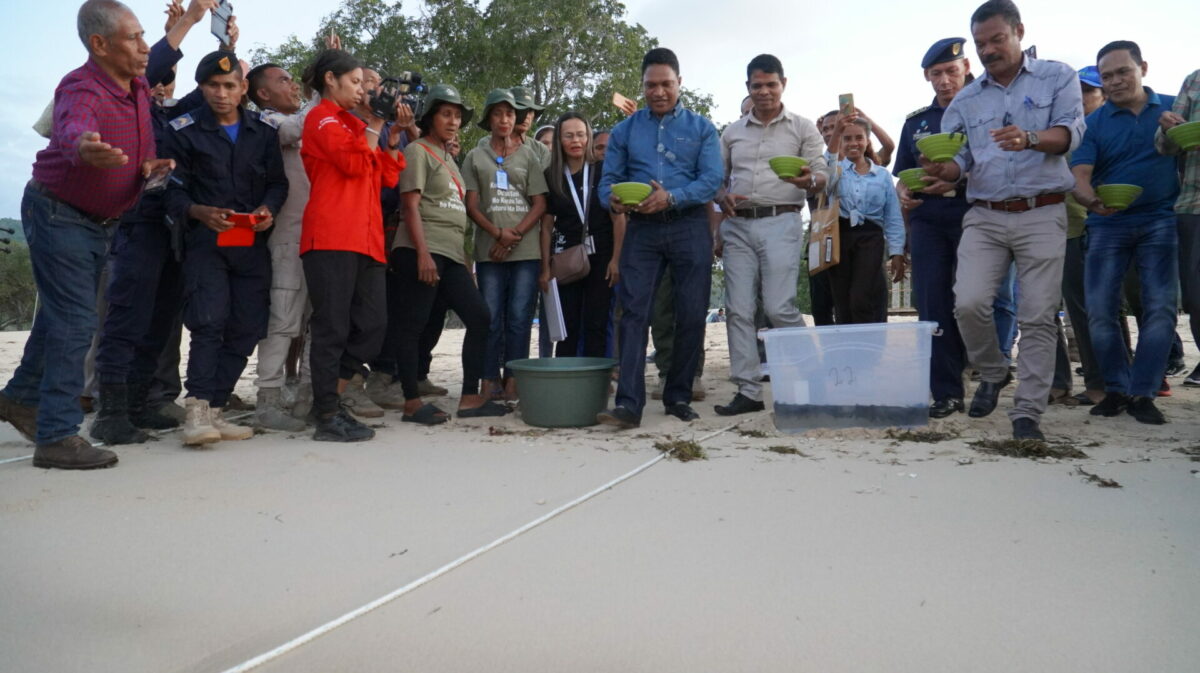Timor-Leste, with its stunning 747-kilometre coastline and a vast ocean expanse covering 75,000 square kilometres, is part of the Coral Triangle – a global hotspot for marine life, home to numerous corals, fish and whale sharks, to name just a few species. Among these treasures are three of the world’s seven endangered sea turtles.
However, sea turtles in Timor-Leste, like in many other coastal regions, face a number of significant challenges. They are hunted for food, their habitats are being subjected to environmental destruction, and they also become trapped in fishing gear as the result of unintended bycatch. To make matters worse, the impacts of climate change – such as rising sea levels and increases in ground temperatures – are destabilising turtle nesting sites.
Sea turtles are vital to ocean health, as they nurture seagrass and coral ecosystems, provide refuge for other marine species and help balance the marine food chain. As their numbers dwindle, these critical ecological roles come under threat.
In places like Com in the Lautem Municipality of Timor-Leste, sea turtles often nest on the shores. Sadly, many of their eggs are collected and eaten, particularly around Muapitin Village. This activity poses a significant threat to the turtle population, necessitating urgent action to safeguard these remarkable creatures and aid in their recovery.
Nino Konis Santana National Park (NKSNP) holds a unique distinction as the only national park in Timor-Leste. Established in 2007 under Government Resolution No. 8/2007, this vast park spans 1,236 km² and encompasses both marine and terrestrial ecosystems across six villages: Com, Lore I, Bauro, Mehara, Muapitin and Bauro. This ambitious initiative aims to preserve the rich biodiversity of the region, with a particular emphasis on protecting endangered species like sea turtles. Additionally, the park honours the memory of Nino Konis Santana, a national hero of the independence movement.
Sea Turtle Conservation in Com

The Arafura and Timor Seas Ecosystem Action Phase II (ATSEA-2) Project, in collaboration with local NGO called Programa Spesifiku fo Prioridade ba Ema Kiak (PROSPEK), has been instrumental in supporting turtle conservation groups in Com. The project’s multifaceted contributions include conducting training sessions on value chains, business management and conservation related to turtle protection.
This partnership has built a turtle protection fence, installed clean water supply connections, established turtle ponds, rehabilitated training and meeting centres, provided seawater supply and connections for the turtle ponds, engaged in handcraft activities to promote local tais (woven textiles) and accessories, established a fishpond and planted trees around the turtle conservation area for reforestation purposes.
As part of the conservation plan, Com Beach was chosen as the venue for a heartwarming sea turtle release event. The event symbolised the community’s commitment to conserving these marine creatures and the ocean ecosystem.
A number of distinguished guests attended the event, including H.E. Mr. Domingos dos Santos, State Secretary for Fisheries; Domingos Savio, Administrator of Lautem Municipality; and Acacio Guterres, former Director-General of Fisheries, Aquaculture and Marine Resources. Representatives from the Ministry of Agriculture, Livestock, Fisheries and Forestry at the municipal level; the Maritime Police Unit; local authorities; and members of local communities were also present. In total, 44 participants, comprising 32 men and 12 women, celebrated this remarkable event.
Baby Sea Turtles Release Program

The highlight of the day was the release of 200 baby sea turtles into the ocean. H.E. Mr. Domingos dos Santos, the newly appointed State Secretary for Fisheries, emphasised that this event could serve as a pivotal reference point for the government’s plans over the next five years. He highlighted the significance of this conservation initiative within the broader framework of government policies and sustainable environmental practices.
This event is expected to influence future government plans and environmental policies, particularly those of the Ministry of Agriculture, Livestock, Fisheries and Forestry, as it demonstrates the community’s commitment to conservation. This heartening event has significantly heightened local community awareness regarding sea turtle conservation and environmental protection. Local communities have agreed to actively participate in continuing this conservation project, with various groups in Com now refraining from hunting sea turtle eggs.
The next steps for sea turtle conservation in Com Beach and NKSNP will involve designing a handbook/SOP for the turtle conservation group in Com, ensuring the continuation of conservation efforts. Although specific data on improvements in sea turtle populations are currently unavailable, the collective commitment to safeguarding vulnerable turtle eggs through conscientious and dedicated actions is making a meaningful impact.
For those interested in supporting these vital conservation initiatives, getting involved in efforts to protect vulnerable sea turtle eggs can make a world of difference. Your dedication can help ensure the continued existence of these magnificent sea turtles and the preservation of Timor-Leste’s marine treasures for generations to come.
By Dominica Paula Jeronimo Guterres


